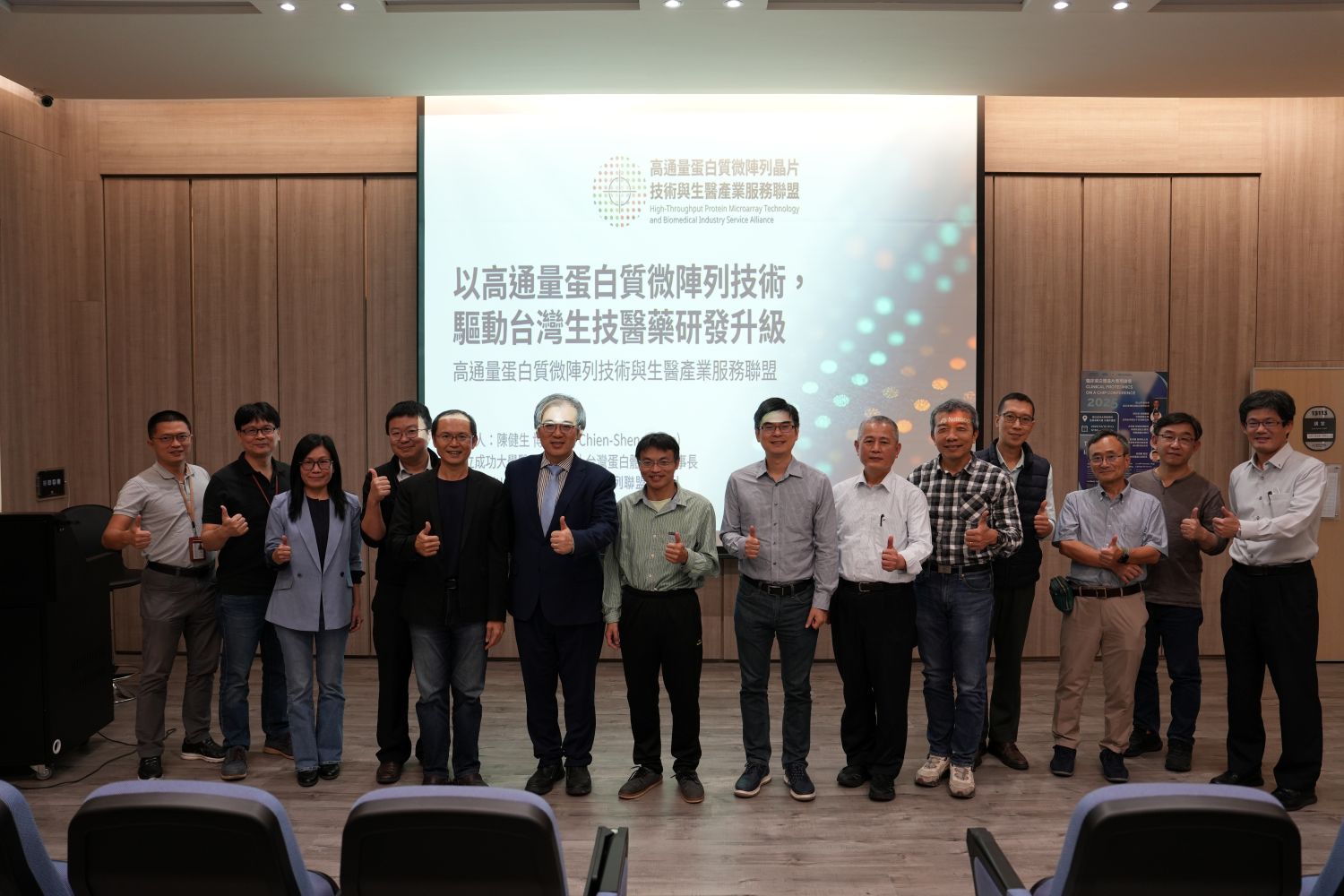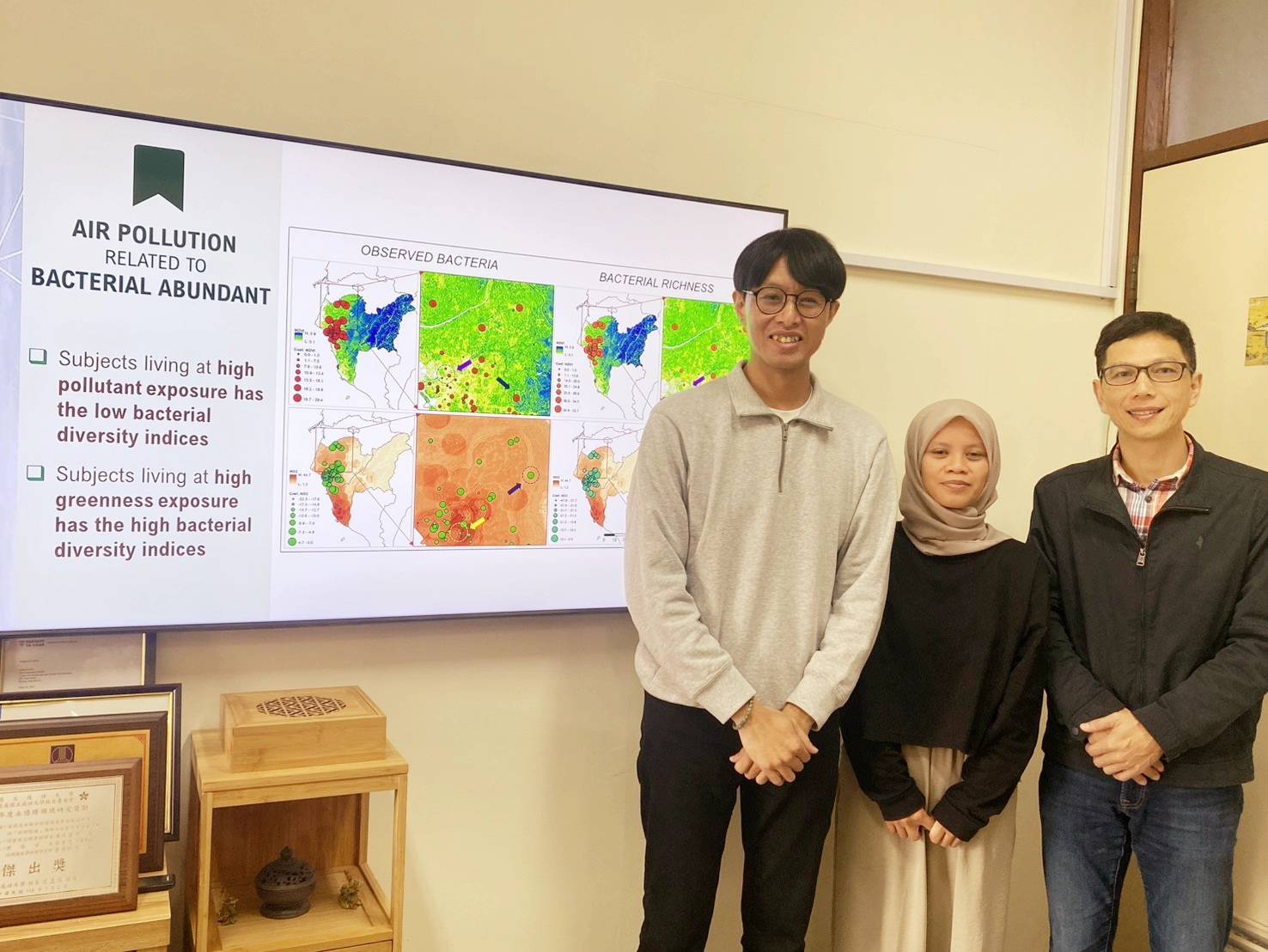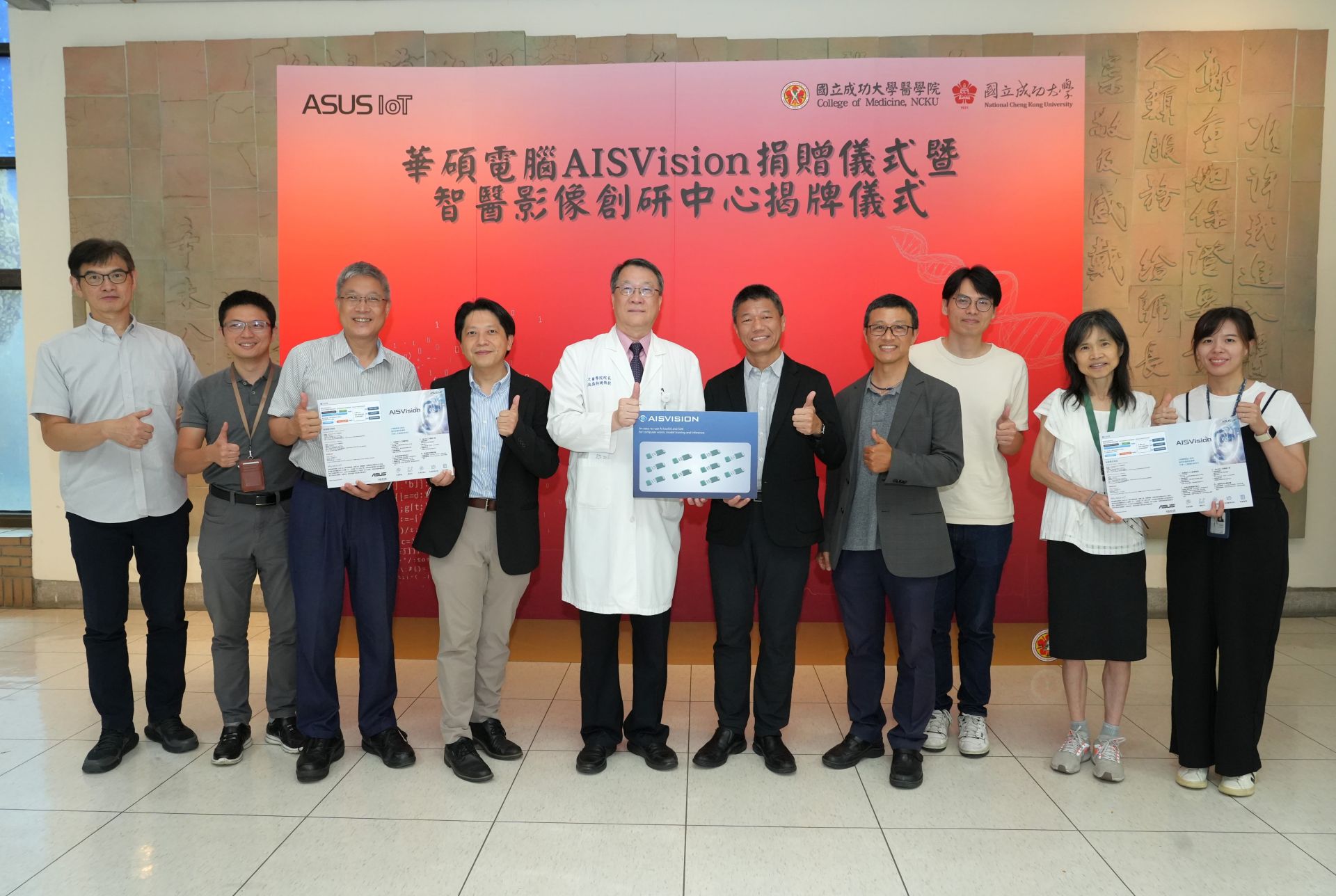The journal is a renowned member of the Science family of journals, holding a leading position in the relevant field. Since the publication of NCKU’s research on April 16, the paper has been downloaded more than 1,600 times within just two weeks, by April 30. This makes it the most downloaded topic in that issue, highlighting the significant attention it has received.
Professors Yi-Ching Wang and Jan-Jong Hung have been conducting cancer research for over 30 years. The recent research was primarily led by Professor Wang's Ph.D. student, Hung-Chia Hsieh. Other contributors include oncologists and thoracic surgeons from NCKU Hospital: Wu-Chou Su, Chien-Chung Lin, and Yi-Ting Yen, as well as postdoctoral researcher Ming-Che Yang from the Department of Life Sciences and master's student Kuan-Yu Chen from the Department of Pharmacology.
Chair Professor Yi-Ching Wang stated that cancer treatment is continuously advancing, and in recent years, the most popular approach has been immunotherapy. This targets the strong immune evasion capabilities of cancer cells by developing immune checkpoint inhibitors, which activate the body's natural immune defenses to kill cancer cells. This approach has opened a new chapter in cancer treatment, and the researchers who developed it were awarded the 2018 Nobel Prize in Physiology or Medicine.
Chair Professor Yi-Ching Wang explained that PD-1/PD-L1 inhibitors are currently the most prominent cancer immunotherapy approach. PD-1 is an immune checkpoint receptor protein on the surface of T cells, while PD-L1 is a protein found on the surface of cancer cells. When these two bind, they enable cancer cells to evade immune system surveillance, inhibiting T cells' ability to exert tumor-killing effects. To further enhance immunotherapy effectiveness, identifying the key mechanisms that regulate PD-1 protein expression has become a global research focus.
After extensive research, the team discovered that in the tumor microenvironment, the deubiquitinase USP24 is significantly upregulated in T cells. Its activity prolongs the stability of the PD-1 protein, leading to the accumulation and overexpression of PD-1, which in turn inhibits the T cells' tumor-fighting abilities. Further analysis revealed that the expression of USP24 is driven by the inflammatory cytokine IL-6/STAT3 signaling pathway, highlighting its close relationship with the immune-suppressive environment induced by tumors.
In addition to successfully revealing a more upstream mechanism of PD-1, laying the foundation for the development of novel immunotherapy strategies, Professor Jan-Jong Hung's team, with support from the National Science Council, successfully established a "switchable tumor gene" mouse model, significantly enhancing the convenience of animal experiments. They also identified a small molecule USP24 inhibitor (USP24-i-101) that effectively reduces PD-1 protein expression in T cells, restores T cell activity, and enhances the tumor-killing effect against cancer cells.
This breakthrough not only reveals that USP24 is a novel regulator of PD-1 but also demonstrates its critical role in immune suppression and tumor immune evasion. Through gene mutations and small molecule inhibition strategies, the research team successfully decoded the role of the USP24/PD-1 pathway in tumor immune regulation, providing a crucial foundation for the development of new immunotherapeutic drugs. Additionally, by monitoring USP24 and PD-1 levels in peripheral blood of patients, the effectiveness of immunotherapy can be assessed, enabling more precise treatment.
The team noted that in mouse experiments with lung cancer, treatment with the USP24-i-101 inhibitor for 10 weeks proved more effective than the existing "CTLA-4" cancer immunotherapy. When both treatments were combined, the number of cancer cells killed was 1.5 times greater than with CTLA-4 alone.
Distinguished Professor Jan-Jong Hung stated that USP24-i-101 was originally developed to address the issue of drug resistance in cancer treatment. However, they later discovered that USP24-i-101 not only extends the time before existing anticancer drugs develop resistance, but also possesses strong potential to resist the mutations in cancer cells that lead to drug resistance. This study further revealed that USP24-i-101 can activate T cell immune function, effectively inhibiting cancer cell immune evasion. It can be said that it is effective in both tumor cell killing and immune cell activation.
The team mentioned that the inhibitor has been patented in multiple countries and is expected to be used as an adjunct strategy to PD-1/PD-L1 antibody therapy, further enhancing the breadth and depth of immunotherapy.
The team also emphasized that cancer research is a long and challenging journey. They are grateful for the financial support from the National Science Council, the National Health Research Institutes, and NCKU. Although there are many limitations in developing cancer drugs domestically compared to large international pharmaceutical companies, the research capabilities are equally impressive. They hope to continue working towards the development of effective drugs in the future.
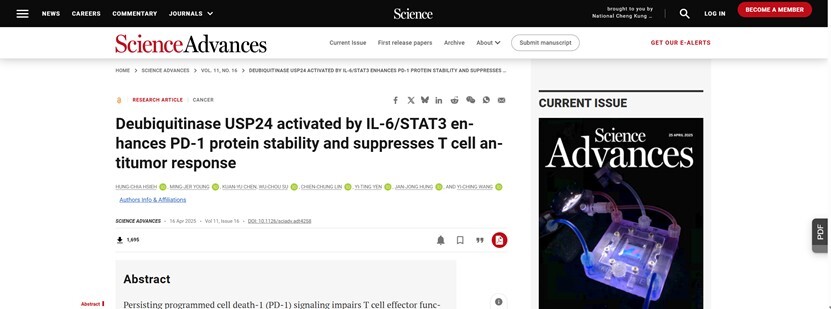
The team led by Chair Professor Yi-Ching Wang, Department of Pharmacology, and Distinguished Professor Jan-Jong Hung, Department of Biotechnology and Bioindustry Sciences, has successfully elucidated the mechanism by which the deubiquitinase USP24 in T cells plays a crucial role in regulating the stability of the immune checkpoint protein PD-1. They have also developed small molecule inhibitors of USP24. Their findings were published in the prestigious international journal Science Advances
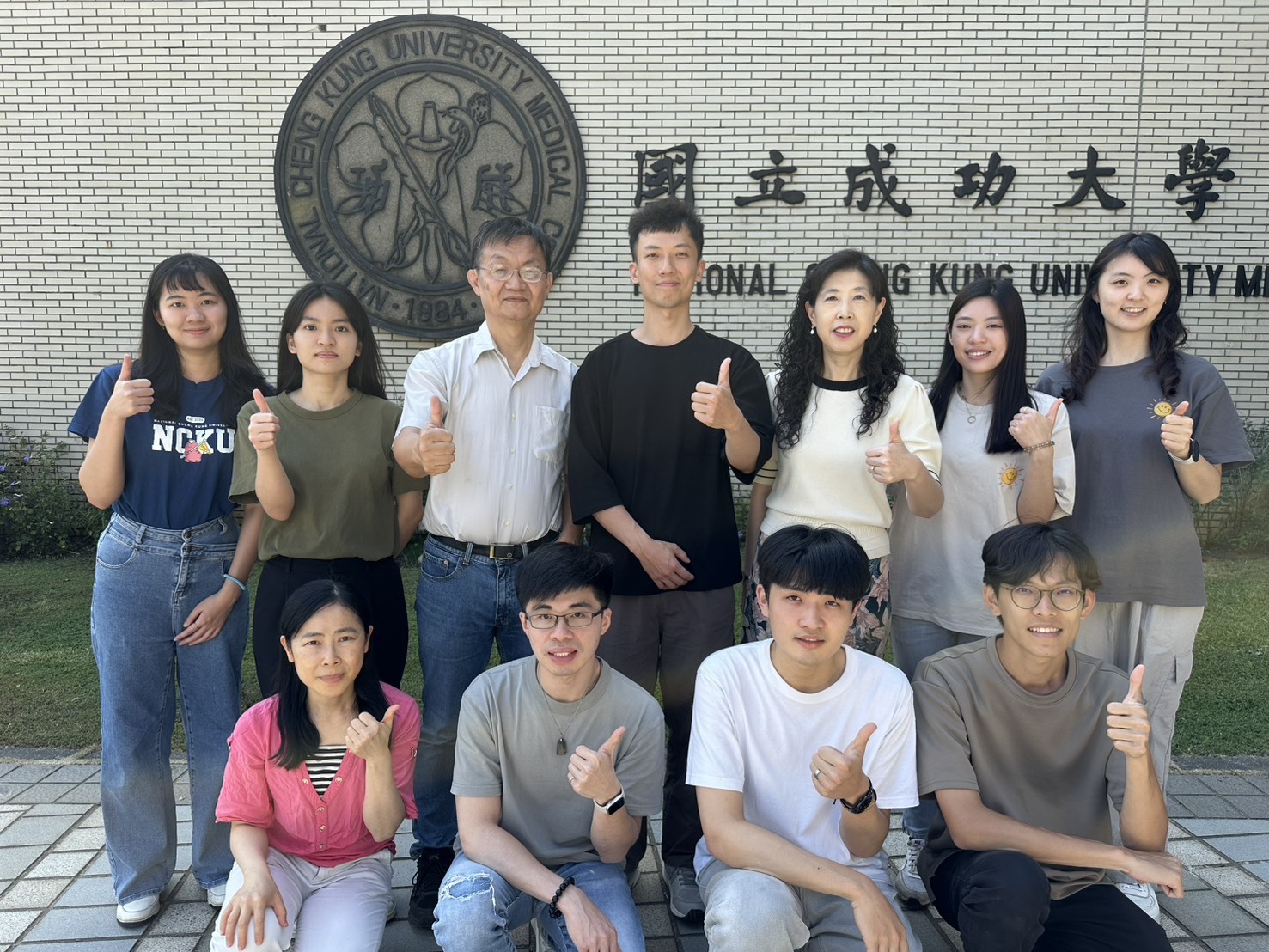
Chair Professor Yi-Ching Wang (third from the right in the back row), Department of Pharmacology, and Distinguished Professor Jan-Jong Hung (third from the left in the back row) from the Department of Biotechnology and Bioindustry Sciences, along with their research team
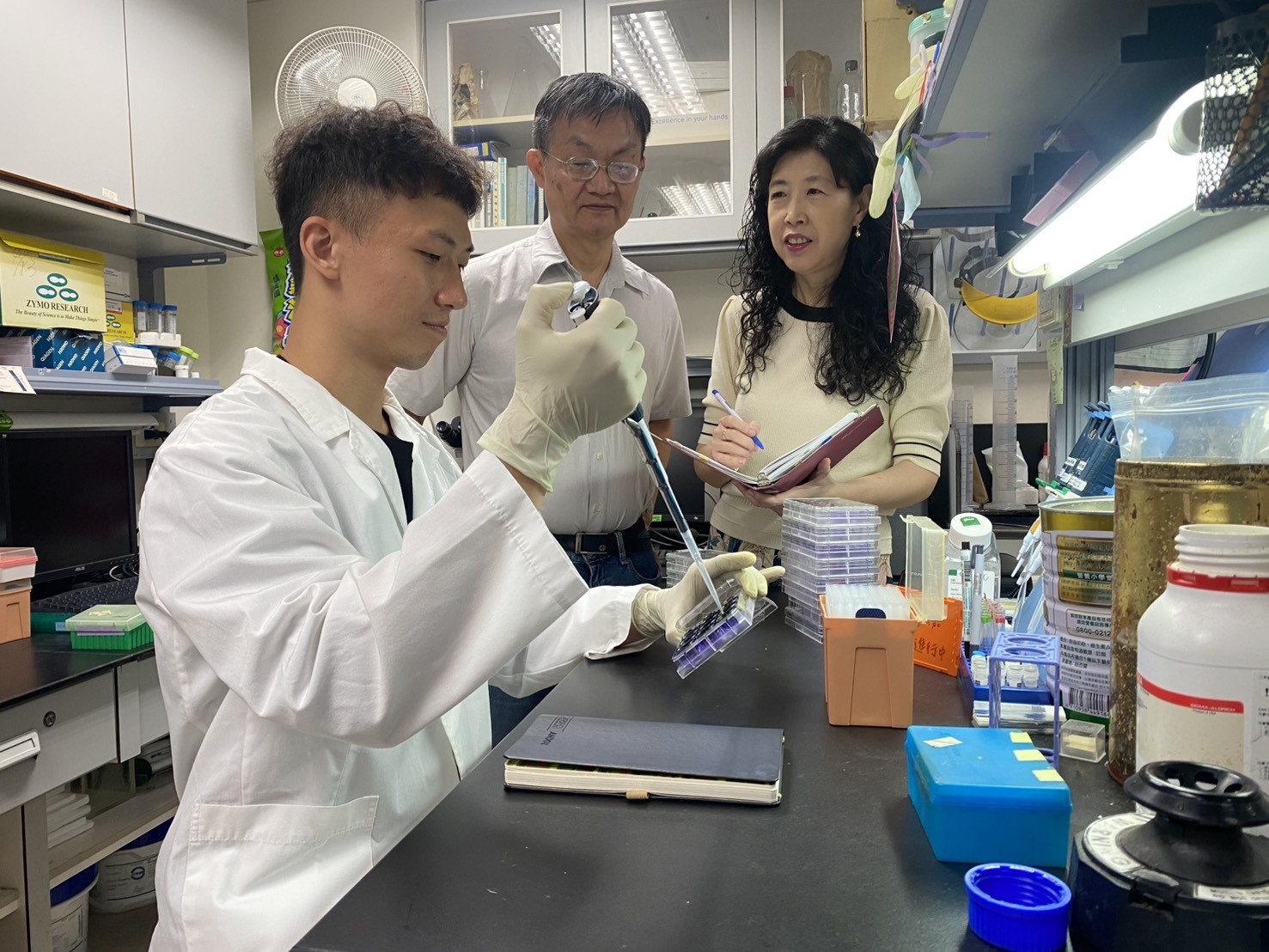
Chair Professor Yi-Ching Wang (right) from the Department of Pharmacology, Distinguished Professor Jan-Jong Hung (center) from the Department of Biotechnology and Bioindustry Sciences, and Ph.D. student Hung-Chia Hsieh are shown working together in the laboratory
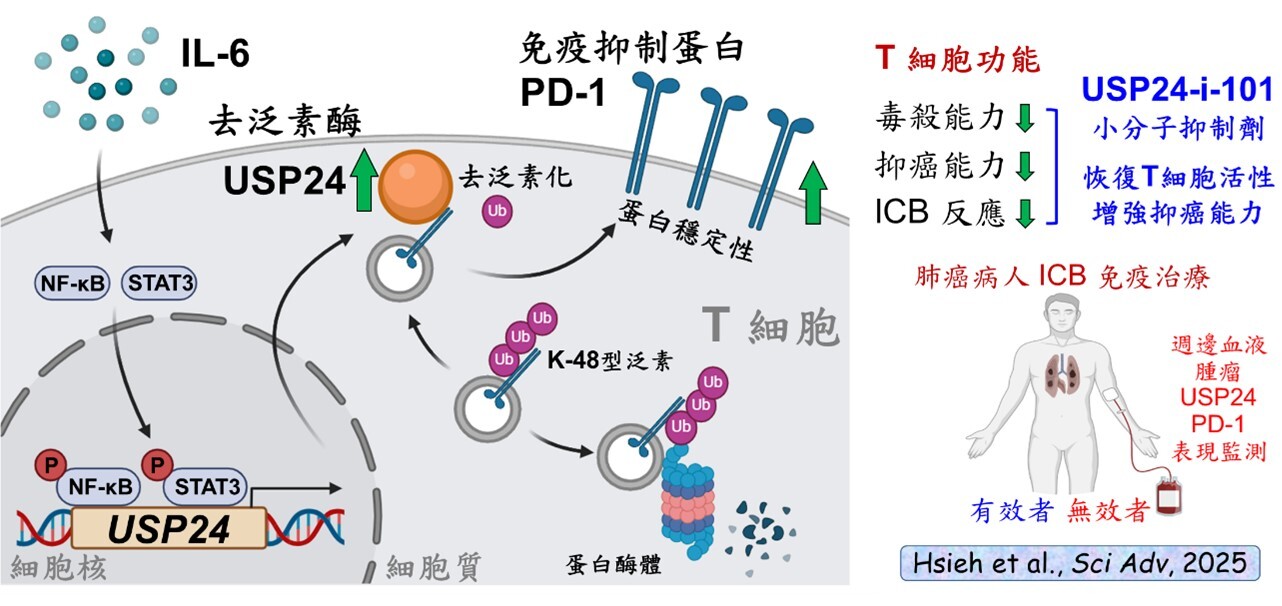
The research team led by Chair Professor Yi-Ching Wang, Department of Pharmacology, and Distinguished Professor Jan-Jong Hung from the Department of Biotechnology and Bioindustry Sciences at NCKU, has successfully elucidated the mechanism by which the deubiquitinase USP24 in T cells — a key player in the human immune response — regulates the stability of the immune checkpoint protein PD-1. This discovery provides a crucial foundation for the development of novel immunotherapeutic drugs
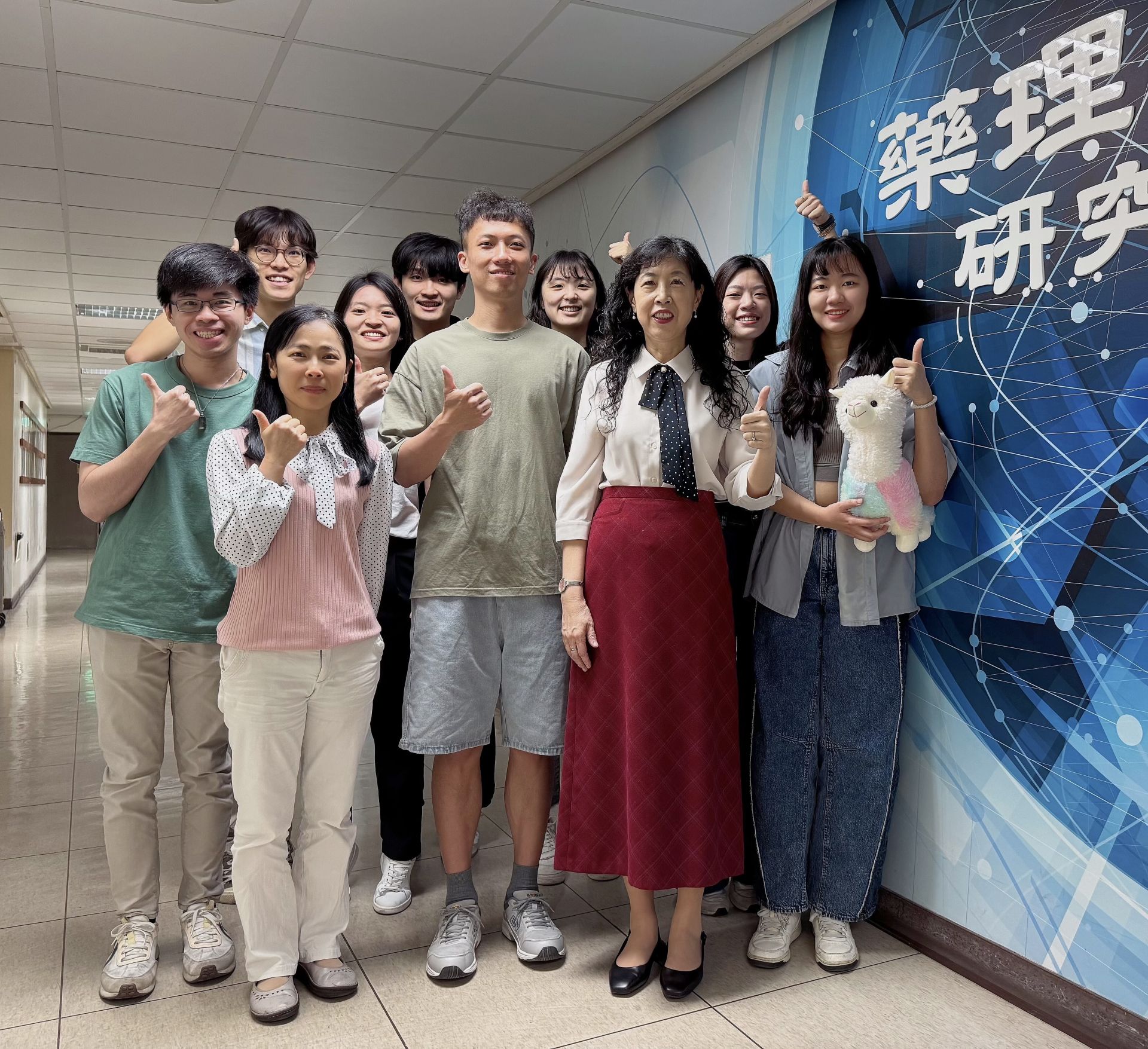
The research team led by Chair Professor Yi-Ching Wang (third from the right), Department of Pharmacology at NCKU, has successfully elucidated the mechanism by which the deubiquitinase USP24 in T cells, a key player in the human immune response, regulates the stability of the immune checkpoint protein PD-1. Their groundbreaking findings were published in the prestigious international journal Science Advances. Hung-Chia Hsieh (fifth from the right) is the lead author of the paper
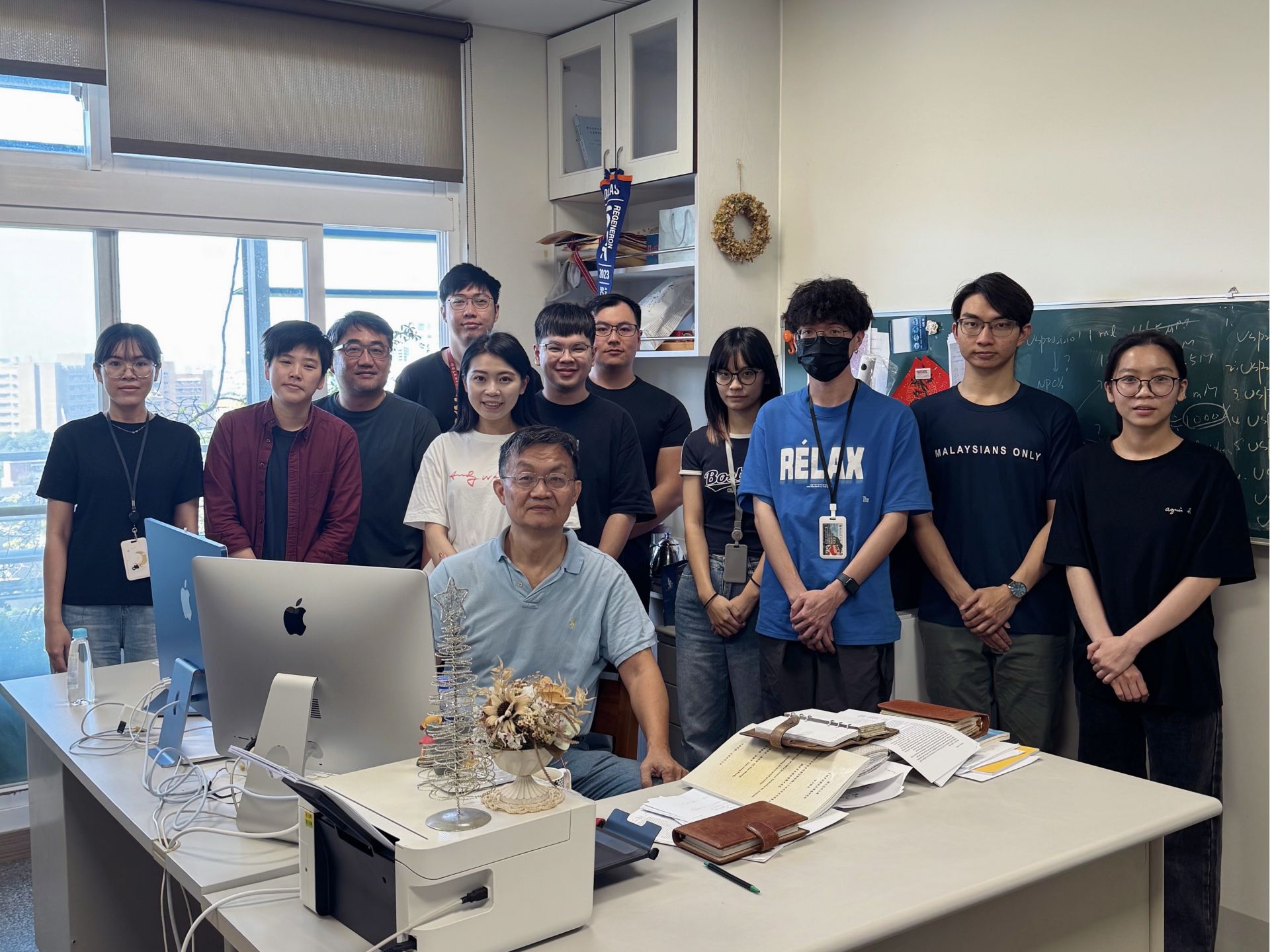
The research team led by Distinguished Professor Jan-Jong Hung (seated in the center) from the Department of Biotechnology and Bioindustry Sciences at NCKU has developed a small molecule USP24 inhibitor that effectively kills cancer cells. Their groundbreaking findings were published in the prestigious international journal Science Advances




